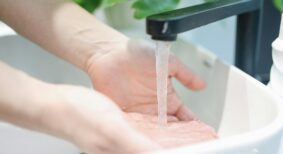Researchers at East Carolina University’s Brody School of Medicine have discovered a new method of detecting SARS-CoV-2 by testing the air that passes through building HVAC systems.
According to the study published in The American Journal of Infection Control, the new information could facilitate earlier detection of the virus, improve quarantine protocols, and reduce transmission and outbreaks.
RELATED: COVID-19 and HVAC systems
Dr. Sinan Sousan, an assistant professor in Brody’s Department of Public Health and Research Faculty at North Carolina Agromedicine Institute, and Dr. Rachel Roper, a professor in the Department of Microbiology and Immunology with an extensive background studying coronaviruses, led the effort to learn whether the virus could be detected through the HVAC systems in student dorms.
Researchers collected samples from two large student dorms and an isolation suite housing students that had tested positive for COVID-19 several times per week for more than three months beginning in January 2021.
RELATED: Scientists find lack of focus on air quality
Sousan’s team collected a total of 248 air samples, testing four collection methods that deposited samples into small filters, saline solutions and cartridges that were then preserved and transported to Roper’s lab for RT-PCR analysis. The testing revealed the presence of SARS-COV-2 in the isolation suite air samples 100 per cent of the time. In the dorms where students were not already in COVID-19 isolation, researchers were able to detect the virus in the air samples 75 per cent of the time when students on the same floor later tested positive via nasal swab.
Researchers suggest that implementing building air sampling on a broader scale could allow for earlier detection of the virus, particularly in shared spaces.








